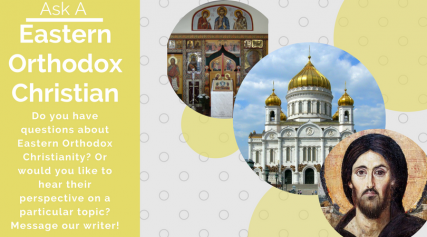What would you like to know about the Eastern Orthodox Christian faith? Submit your question.
I would like to know the “Orthodox attitude” of a daughter whose mother who is narcissistic, controlling and overly critical. Nothing ever pleases her. How should “Orthodox behave” with people who deny they have a personality disorder and don’t seek help? Thank you”
Orthodox Attitude: The Orthodox attitude is that everyone is a child of God, a crown of God’s creation. However, often one is tempted and corrupted by Satan’s desire to destroy and to pervert all that God has created. One must be vigilant in these demonic efforts, to thwart our intentions and purpose in the way we live.
In the Garden of Gethsemane, when Christ was Speaking to Saint Peter and said to Saint Peter, “Get behind me, Satan” he was not speaking to Saint Peter but to Satan who was speaking and working through Saint Peter (Matt 16:23).
Mankind fell out of the garden of paradise when Satan deceived Eve by telling her that if one eats of the forbidden fruit of the tree of knowledge of good and evil one would become like gods (Gen 3:5).
And so man could not resist the desire to become like God and has continued to this day to perpetuate the fall. The autonomous individual in our culture now relies mostly on his own understanding and wisdom and no longer depends on the wisdom of God. I would say that the wisdom of man is foolishness without the wisdom of God.
Orthodox Behavior: The Orthodox way (behavior) is to live your life as if the presence of God is within you and if possible to manifest Who God is, love, as a light to share with others. One should approach all that one encounters in every situation and events in the context of love. So when I make a decision that involves others, do I consider what benefits others first, before mine? If we say who we say that we are, Christians, then we must follow what Christ did. He came to serve and not judge and to reveal that He is Love, the Way, the Truth, and the Life.
From an Orthodox point of view, we are a work in progress struggling to do the best we can. Within our communities we usually consult our priests in situations we can not comfortably work out in life experiences.










